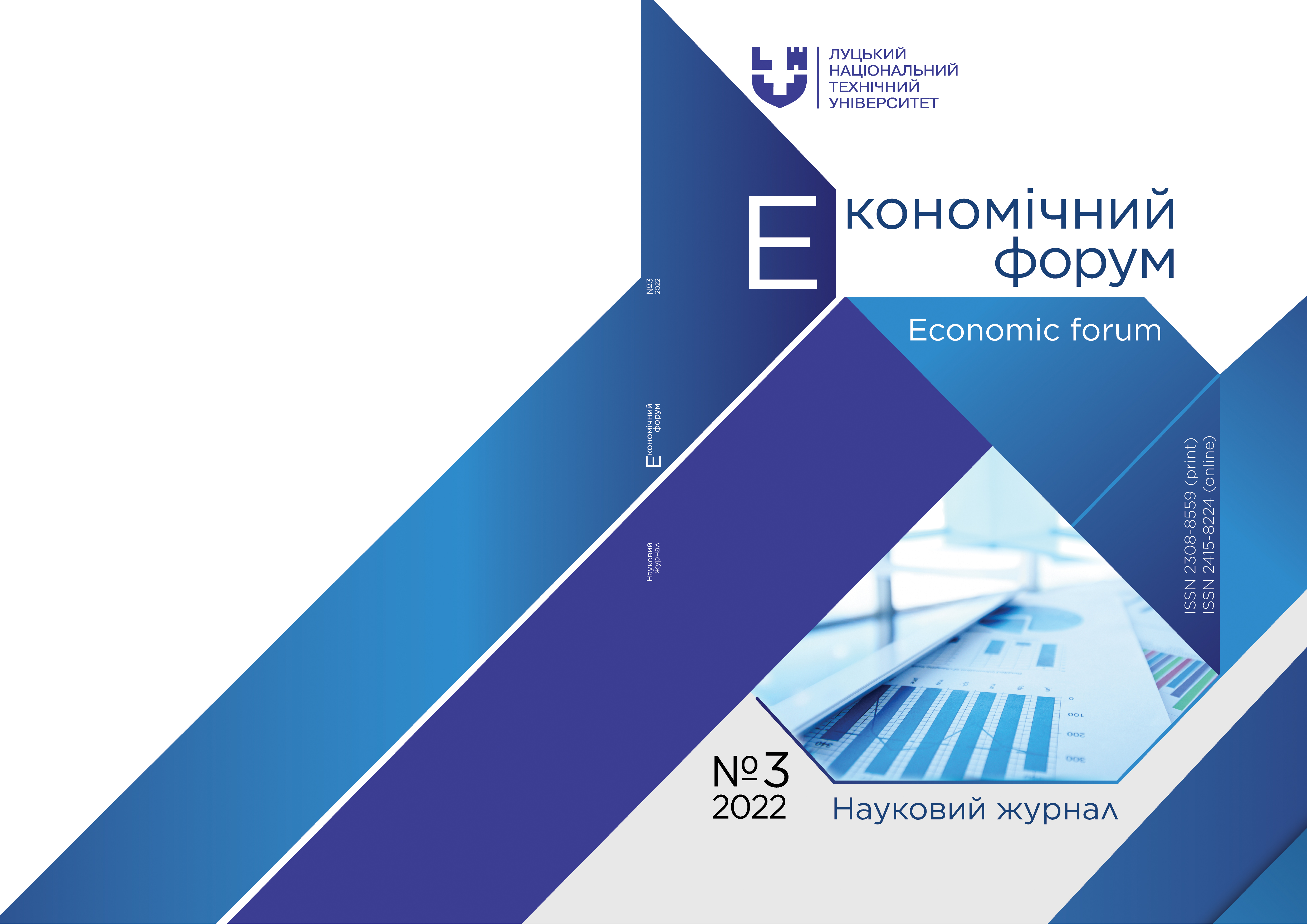DIGITALIZATION OF PUBLIC ADMINISTRATION AND E-DEMOCRACY AT THE REGIONAL LEVEL
Abstract
The article summarizes the issueof digitization of public administration and democracy, which is a process of changing governance in general and the activities of state bodies in particular, which is based on digital technologies in the process of providing public services. The main goal of the study is to determine the main advantages of e-democracy, which encourage the growth of citizens' opportunities for their participation in social and political management and the tools of electronic democracy, which have become convenient online tools for communication between citizens, civil society organizations and executive authorities. The systematization of literary sources and approaches to solving the problem of digitalization of public administration and e-democracy at the regional level shows that this process requires constant implementation and improvement of digital tools of e-democracy in order to create a digital state focused on meeting the needs of citizens.urgency of solving this scientific problem lies in the fact that the development of digitalization of public administration and electronic democracy at the regional level depends on the accessibility of digital technologies and the activity of citizens to the "e-Interaction" platform. The study of the topic of digitization of public administration and electronic democracy at the regional level is carried out in the following logical sequence: the relevance of building a system of electronic governance and electronic interaction is determined, which has a positive effect on further transformations in the state, first of all, the methods and forms of interaction of public administration bodies with the population and business; public organizations; the advantages of using e-democracy, which have a positive effect on further radical transformations in the digital society, are investigated. The methodological tools of the research methods were the last few years of research. The object of the study is the processes related to the spread of electronic democracy at the regional level, which affect the digital development of public administration and the digital state. The article presents the results of an empirical analysis of the number of executive authorities that provided the opportunity to use e-democracy tools, which enabled Ukraine to join the group of countries with a high level of e-government. The study empirically confirms and theoretically proves that the development of e-democracy is an important step of the Government towards the creation of a service state, which is focused on meeting the needs of citizens for communication and interaction with executive authorities. The results of the study can be useful for scientists and practitioners engaged in the study of digital development and e-democracy in Ukraine.
Downloads
References
2. Markevich K. Digitization: advantages and ways to overcome challenges (2021). Razumkov Center. URL: https//razumkov.org.ua/statti/tsyfrovizatsiia-perevagy-ta-shliakhy-podolannia-vyklykiv (accessed 12 February 2022).
3. Ukraine 2030E – a country with a developed digital economy (2021). URL: https://strategy.uifuture.org/kraina-z-forovovoyu-cifrovoyu-ekonomikoyu.html (accessed 14 February 2022) [in Ukrainian].
4. Recommendation CM/Rec (2009). 1 of the Committee of Ministers to member states on electronic democracy (e-democracy). URL: http://www.coe.int/t/dgap/democracy/Activities/GGIS/CAHDE/2009/RecCM2009_1_and_Accomp _Docs/Recommendation%20CM_Rec_2009_1E_FINAL_PDF.pdf (accessed 15 August 2022) [in Ukrainian].
5. Issues of the Ministry of Digital Transformation: Resolution of the Cabinet of Ministers. of Ukraine No. 856 dated September 18, 2019 / Official. Verkhov website. Council of Ukraine. URL: https://zakon.rada.gov.ua/laws/show/856-2019-%D0%BF/ed20190918#top (accessed 14 February 2022) [in Ukrainian].
6. Use of electronic democracy tools by state and local self-government bodies. URL: https://ukrstat.gov.ua/operativ/operativ2020/infs/arh_vied_u.htm (accessed 17 August 2022) [in Ukrainian].
7. Some issues of digital development: Resolution of the Cabinet of Ministers of Ukraine No. 56 of January 30, 2019. URL: https://zakon.rada.gov.ua/laws/show/56-2019-%D0%BF#Text (accessed 18 July 2022) [in Ukrainian].
8. Internet subsidy. URL: https://diia.gov.ua/internet-subbendiya (accessed 14 February 2022) [in Ukrainian].
9. Take action. A guide to the world of e-democracy. URL: https://vzaemo.diia.gov.ua/ (accessed 20 February 2022)
10. On amendments to some acts of the Cabinet of Ministers of Ukraine: CMU Resolution No. 940 of October 9, 2020. URL: https://zakon.rada.gov.ua/laws/show/940-2020-%D0%BF#Text (accessed 12 February 2022) [in Ukrainian].
11. Malinovsky V.Ya., Hrytsyak N.V., Semenchenko A.I. (2017). E-governance and e-democracy: training. help.: at 3 p.m. / for general ed. A.I. Semenchenko, V.M. Dreshpak Part 1: Introduction to the course. Conceptual principles of e-government and e-democracy. K.: FOP Moskalenko O.M., 70 p. [in Ukrainian].
12. Pigarev Y. B., Lozhkovskyi A. G., Mamatova T. M. (2017). E-governance and e-democracy: training. help.: at 3 p.m. / for general ed. A. I. Semenchenko, V. M. Dreshpaka. Part 15: Technologies for the development of e-government and e-democracy. K.: FOP Moskalenko O. M., 52 p. [in Ukrainian].
Copyright (c) 2022 Пиріг Світлана

This work is licensed under a Creative Commons Attribution-NonCommercial 4.0 International License.


1.png)








